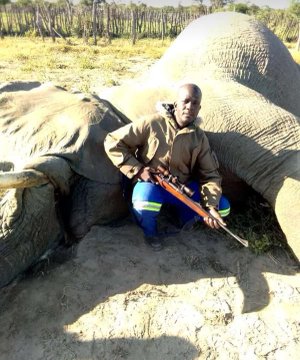
In Zimbabwe, 60 people have been killed by elephants since the start of 2022, the government announced on Tuesday.
With 100,000 specimens, Zimbabwe has the second largest elephant population in the world after Botswana, representing about a quarter of the elephants in Africa.
Unlike other countries, where poachers have wiped out these mammals for the ivory trade, the elephant population in Zimbabwe is growing by 5% a year.
“In some areas, elephants move in vast herds. They have devoured everything in the fields and are now moving onto properties, forcing people to fight back, and in the process injuring elephants,” government spokesman Nick Mangwana wrote on Twitter.
“Injured elephants become aggressive and uncontrollable,” Mangwana said. “The issue of human-wildlife conflict has become very sensitive. This year alone, 60 Zimbabweans have been killed by elephants and 50 injured,” he said.
Mangwana in 2021, 72 people were killed by elephants.
Tinashe Farawo, of Zimbabwe’s Parks and Wildlife Management Authority, told AFP there was “likely to be a disaster if the (elephant) population is not reduced”.
“The threat is likely to increase during the dry season when the herds will move in search of water and food,” he noted, pointing out that rangers had been deployed to remove the most dangerous elephants.










